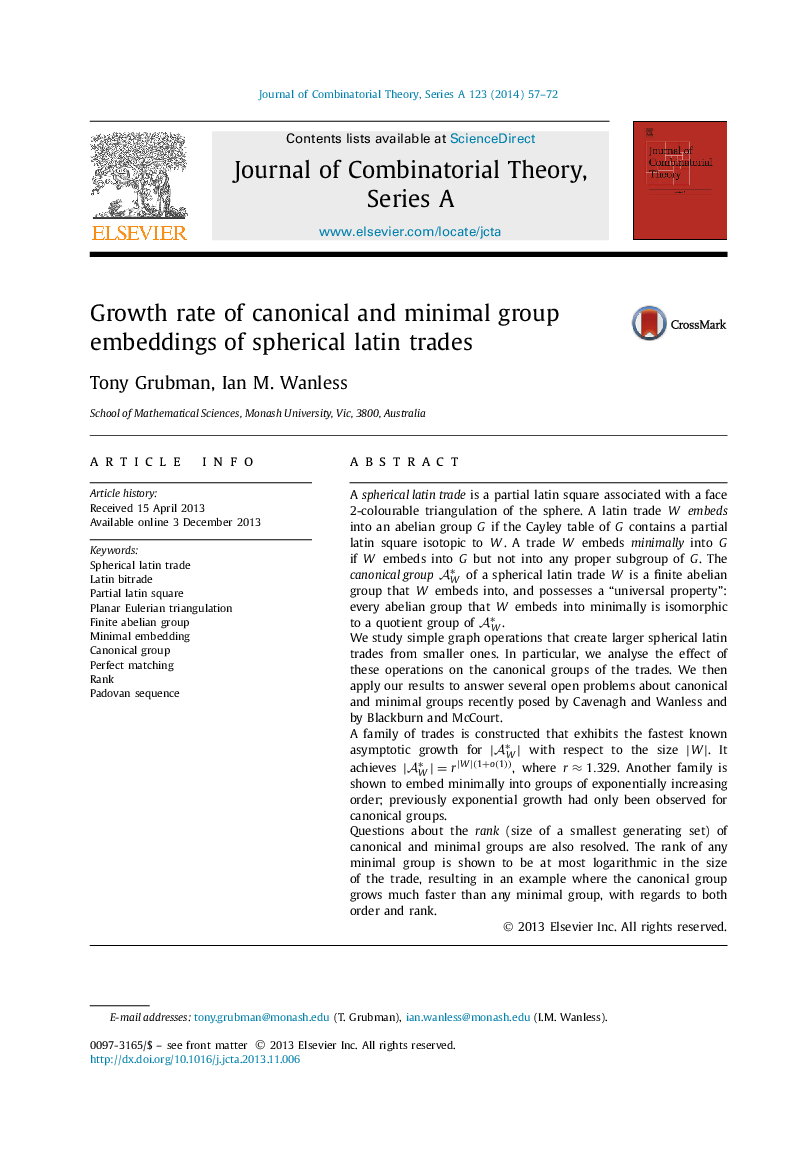| Article ID | Journal | Published Year | Pages | File Type |
|---|---|---|---|---|
| 4655352 | Journal of Combinatorial Theory, Series A | 2014 | 16 Pages |
A spherical latin trade is a partial latin square associated with a face 2-colourable triangulation of the sphere. A latin trade W embeds into an abelian group G if the Cayley table of G contains a partial latin square isotopic to W. A trade W embeds minimally into G if W embeds into G but not into any proper subgroup of G. The canonical group AW⁎ of a spherical latin trade W is a finite abelian group that W embeds into, and possesses a “universal property”: every abelian group that W embeds into minimally is isomorphic to a quotient group of AW⁎.We study simple graph operations that create larger spherical latin trades from smaller ones. In particular, we analyse the effect of these operations on the canonical groups of the trades. We then apply our results to answer several open problems about canonical and minimal groups recently posed by Cavenagh and Wanless and by Blackburn and McCourt.A family of trades is constructed that exhibits the fastest known asymptotic growth for |AW⁎| with respect to the size |W||W|. It achieves |AW⁎|=r|W|(1+o(1)), where r≈1.329r≈1.329. Another family is shown to embed minimally into groups of exponentially increasing order; previously exponential growth had only been observed for canonical groups.Questions about the rank (size of a smallest generating set) of canonical and minimal groups are also resolved. The rank of any minimal group is shown to be at most logarithmic in the size of the trade, resulting in an example where the canonical group grows much faster than any minimal group, with regards to both order and rank.
